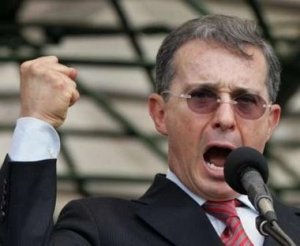Bogotá, the capital of Colombia, is one of the few cities I have visited that lived up to its scary reputation. In most places, if you don’t go looking for trouble, it will keep out of your way. In Bogotá in the late 1990s, trouble came looking for you.
Queuing in a fast-food restaurant, I was proffered a self-assembly pistol by a customer in front of me, who assured me I would need the weapon during my visit. I declined his offer. A woman who headed up the sales operation of a well-known hotel chain told me that if she worked later than eight o’clock in the evening, she slept on a fold-out bed in her office – to take a cab was to guarantee that she would not arrive home in one piece.
Law and order in Colombia at that time was capricious and fragile. Entrenched in a civil war with FARC guerrillas and with its cities under the sway of drug gangs, the government seemed intent on driving the nation over a cliff. The election of Álvaro Uribe in 2002 stopped the rot. While things are far from perfect, Uribe has at least created the conditions where Colombian families can plan for a stable future. Uribe now wants to change the constitution and run for a third term this year, in order, he says, to secure his achievements.
Whoever wins the forthcoming election will have to deal with a very noisy neighbour – Venezuela’s leader Hugo Chávez. As the health and political influence of Fidel Castro has faded, Chávez has stepped into his shoes as Latin America’s most charismatic, dogmatic and, as far as the United States and its allies are concerned, dangerous leader. His gift for getting under the skin of his adversaries was demonstrated when he managed to goad the normally unflappable King Juan Carlos of Spain into telling him to shut up.
Last month Chávez’s decision to close the opposition television channel RCTV provoked riots in Caracas in which two young people were killed . And as his economy falters, Chávez appears to seek the age-old remedy for dictators with internal problems – external conflict.
He severed diplomatic relations with Colombia last year when Uribe’s administration signed a pact with the US government giving the US military access to Colombian bases.
Chávez moved his troops to the border, blew up two bridges linking the countries and urged his armed forces to “prepare for war”. That conflict took another step closer last week when Colombia made a formal diplomatic protest to Venezuela following what it regarded as a violation of its airspace by a Venezuelan military helicopter. Venezuela’s foreign minister, Nicolás Maduro, responded by accusing the Colombians of lying.
So far, the two enemies have contended themselves with a war of words. But Chávez’s dream of fulfilling the revolutionary legacy of Simón Bolivar and creating a federation of states in South America could yet drag the continent into chaos.

